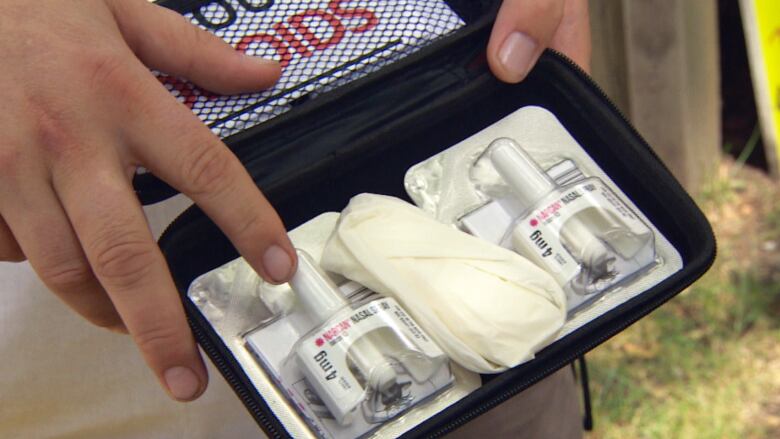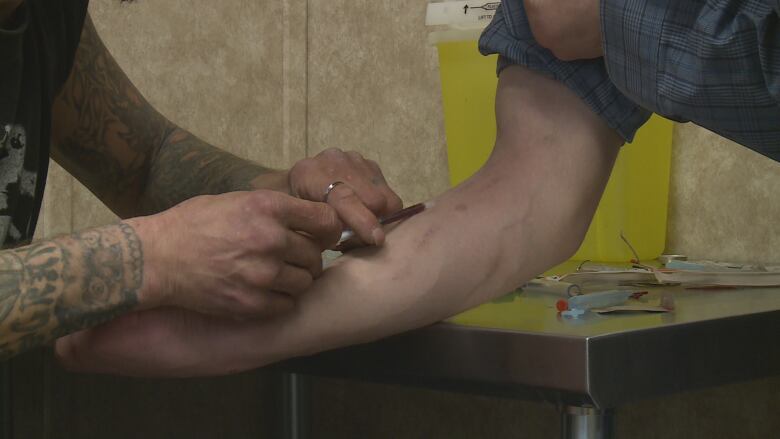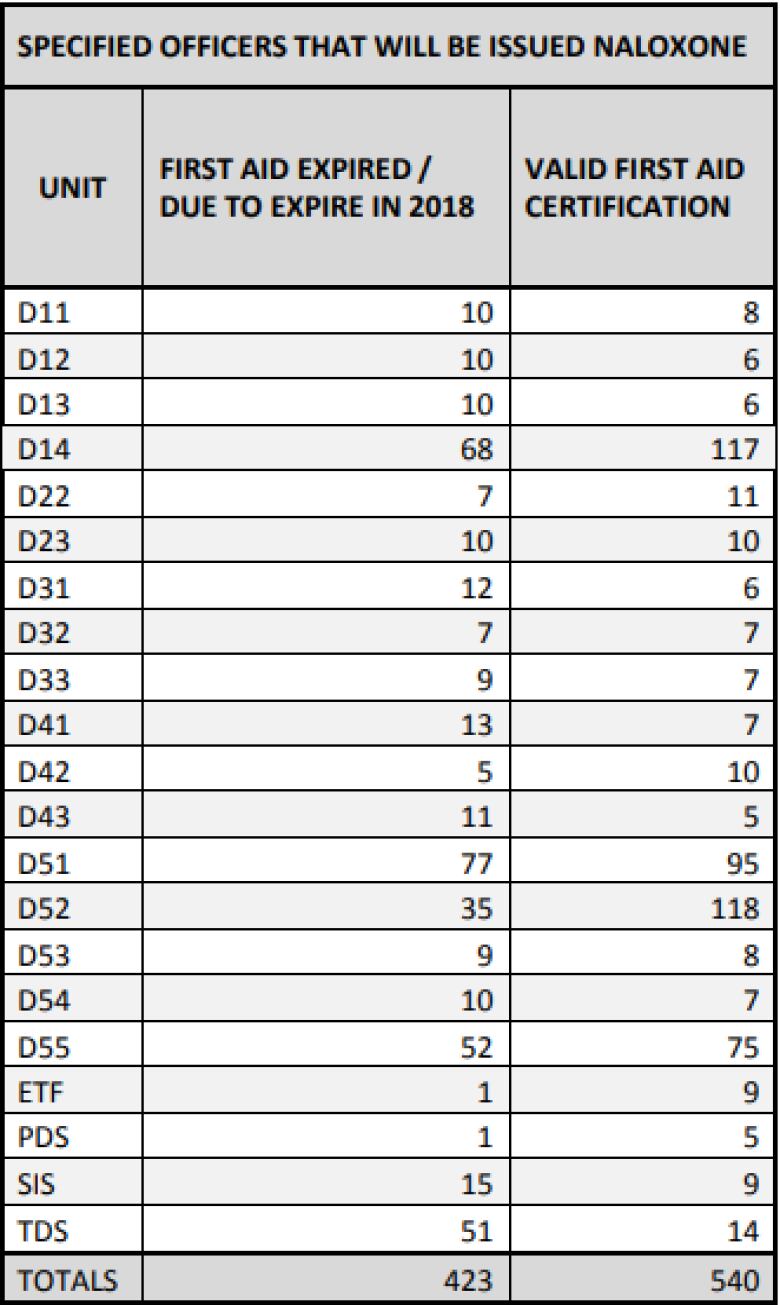Nearly half of officers set to get naloxone training don't have updated CPR training
Report to be presented to Toronto Police Services Board Wednesday

Some Toronto police officers are expected to be equipped with naloxone, the drug that reverses an opioid overdose, by the end of June. But a new report says that many of those chosen to administer the lifesaving drughave expired first aid training.
The study, commissioned by the Toronto Police Services Board, will be presented to the board Wednesday.
-
SIU probe into death after police administered anti-overdose drug 'completely unfair': union
-
Ontario makes controversial change on how to help overdose victims
The report foundthat 44 per cent of the officers who will be carryingnaloxoneare either currently working with expired first aid training, or their training will expire in 2018.
More than half of those in need of a CPR update are working in areas where there is heavy drug use. Some of the divisions with the biggest need for updated certification are 51, 52, and 55 Divisions.
'You should be concerned'
"Yes, you should be concerned," said Mike McCormack, the president of the Toronto Police Association. "Their training as far as CPR isn't being kept up to date, it's not the officer's fault, it's a staffing issue."
McCormack says the depletion of officers over the last few years has put a strain on the police force, and officers aren't able to take the time needed to update certain courses and/or training.
The coordination of the naloxone project is being done by Toronto Police Superintendent Scott Baptist. He says even though officers are not forced to renew their CPR training when it expires after two years, there's no need to panic.
"An officer that gets [first aid training] every two years, they do that to maintain a certification. However,they may have gone for first aid training 12 times in their career," said Baptist.
Nearly 1,000 officers are set to carry naloxone, including: the frontline primary response unit, members of the Gun and Gang Task Force, the Toronto Drug Squad, and major crime unit sergeants and detectives.

Police not needed for overdose calls, harm reduction worker says
Harm reduction workers, like Zoe Dodd, applaud the move. Although she believes that all first responders should know how to administer naloxone during an overdose, she feels Toronto needs to follow Vancouver's lead and nix police from responding to 911 calls that are strictly overdose related.
"We are talking about criminalized people who are marginalized who use drugs, they don't have a good relationship with police," said Dodd. "People are so afraid of the police, it's actually one of the biggest issues we have people not calling for paramedics, because they're afraid that police will come on the scene."
Both the union and the force disagree with that concern. Baptist and McCormack saypeople who are overdosingwon't care whether it's police or the paramedics whosave their life with naloxone.

"This is why we have the Good Samaritan Drug Overdose law that protects people from being arrested," said Baptist.
Naloxone training for 540 officers with current CPR credentials will start shortly. The training is an hour long online course.
The other officers will have totake the 1 or 2 day CPRcourse.
"Toronto Police College has the ability to start training all of these officers in first aid immediately" and in divisions where the numbers are high, instructors will come to them, the report says.
Toronto police are about a year behind other forces, Peel Regional Police have been carrying naloxone in nasal spray form since June 2017.












_(720p).jpg)


 OFFICIAL HD MUSIC VIDEO.jpg)
.jpg)



























































































